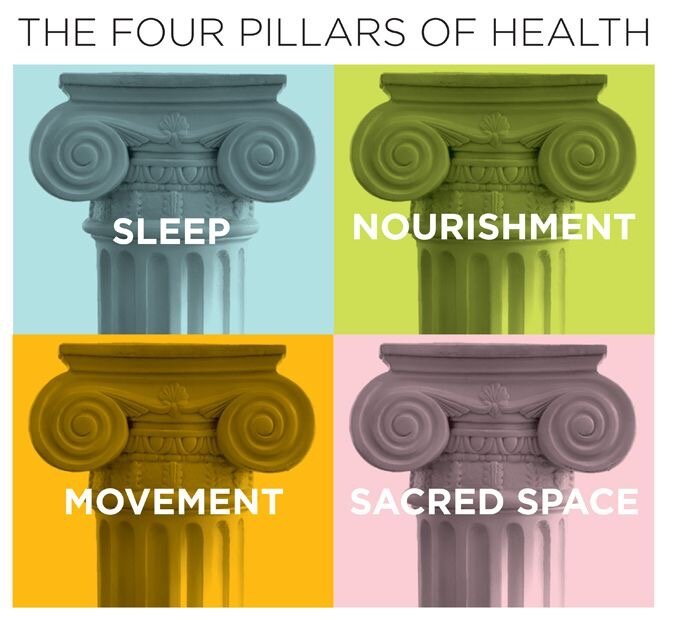Have you ever experienced a loss of trust? Even as far back as when you were just a child?
Trust is the glue of life. It’s the most essential ingredient in effective communication. It’s the foundational principle that holds all relationships.
Stephen Covey, Author of The 7 Habits of Highly Effective People
A loss of trust often comes with a sense of feeling unsafe.
When you’re feeling unsafe you’ll switch on ‘hyper-vigilance’. That ‘fight or flight’ state which increases our adrenaline, the blood pumping faster through our veins, shortening of breath, the mind on alert, ready to take action, to stay and fight or run and protect ourselves or those we love.
Hyper-vigilance, if remaining switched on, can cause you to feel empty, drained with exhaustion, and emotionally frozen. You’re feeling a little out of kilter? Feel dog-tired for no reason you can easily pin point. You keep trying to stick to being happy, reliable you. You meet all the demands of the roles you have in life, holding it all together. In the meantime, your energy is ‘reducing to a dull glow’, like the dying embers of a fire. You become teary and you quietly withdraw inside yourself.
A confusing experience! An emotional and physical experience that makes you wonder if it might be a good idea to get a set of blood tests done.
I found out that this loss of trust and feeling safe and subsequent hyper-vigilance, may be due to something that caused us to feel ‘unsafe’ as a child. A feeling that rears its head, exactly as it had in childhood, especially where trauma, emotional loss or childhood abuse was involved.
The greatest damage done by neglect, trauma or emotional loss is not the immediate pain they inflict, but the long term distortions they induce in the way a developing child will continue to interpret the world and his/her situation in it.”
– Gabor Mate
I was recently interviewing a group of women and specialist psychologists for my book.
Lack of trust, recurring feelings of being ‘unsafe’ in relationships, mixed with becoming hyper-vigilant was a common thread for all these women. These symptoms were confirmed by the psychologists. These were women who survived incest in their childhood years and psychologists specialised in providing therapy to adult survivors of incest.
We are taught about trust in the early stages of our development. We do this by watching the bonding between parents, by experiencing the safety of a home, love and warmth.
Childhood abuse, including childhood sexual abuse (incest), turns that feeling of trust and safety within the home and the family, upside down.
I went from a happy little girl of 7, to being always alert, secretive, and I lost trust… Alert when I walked in the door after school… I couldn’t be sure it would be safe in my bed or even on family visits to grandparents… Always tuned in to ‘his’ movements in the house. That sucked! My childhood became a solo mission of resistance and resilience.
– from the recount of one survivor (anon)
As an adult, restoring the feeling of safety is a combination of willingness, courage and action.
Experiencing a recurrence of a negative feeling, such as loss of safety, there are self-care actions you can take to help you regain a more balanced state.
Experienced therapists can help by treating a survivor’s trauma (the past). As an adult survivor of childhood abuse or incest, there are also small pro-active actions you can take. Setting forward-focused goals for how you want life to be for you moving forward.
The actions to be taken fall within the 4-pillars of good health.
These 4-pillars are:
- Sleep
- Nourishment
- Movement
- Sacred Space

When your cup is feeling empty, both emotionally and physically, you need to be OK to say “I’m just giving myself self-care right now”. No other explanation to family members is needed.
Start by increasing or changing-up the small daily actions and time spent in each of the 4-pillars of health:
This is how you may, through gentle self-care, re-align yourself:
- Movement: If you’re not moving (exercising), try to get outdoors and take even a short walk each day. Find a class that involves easy movement like dancing or aquarobics. These 2 involve music so they helps lift your spirits too.
- Nourishment: Make a change to your menu, particularly if you’re the person doing the shopping and cooking. Try moving away from ‘white/sugary’ foods to more nourishing foods that are good for you.
- Sacred Space: Give yourself time to meditate or sit quietly, find rituals such as journalling or gardening, that nurture your soul.
- Sleep: Good sleep is so important. There is plenty you can do to shape-up a good pre-bedtime routine, including TV and smartphone curfew, peaceful music, a warm oil bath, reading a good book.
Through awareness of what your thoughts and feelings are, then giving back to yourself, you will restore both your energy and a refocused, positive mindset.
It’s worth trying don’t you think? I believe that you’re worth it. Do you?
Please don’t hesitate to send me a message if you’d like support in changing habits and coming up with new rituals that will get you thriving again.

